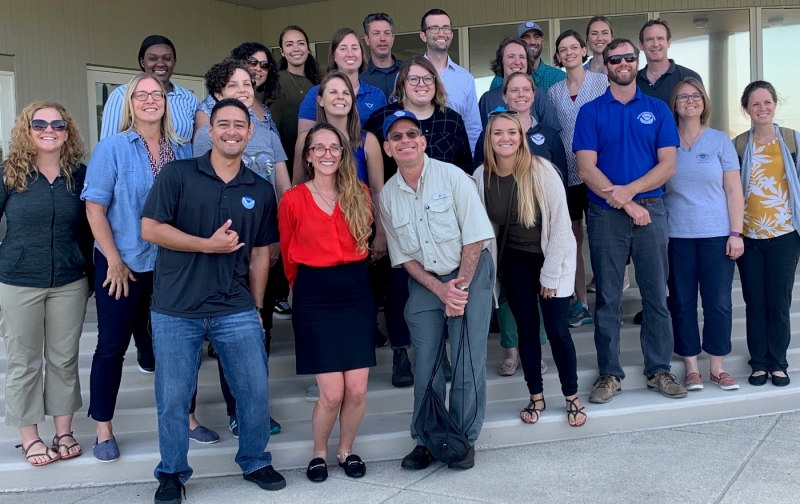Last month I began my two-month internship, funded by the National Science Foundation, with the NOAA Marine Debris Program (MDP) Communications Team in Silver Spring, Maryland. I was drawn to MDP because their expertise would provide me with the opportunity to (1) augment my current academic research training with non-academic internship and training opportunities, and (2) allow me to pursue new activities centered around acquiring professional development experience that will help prepare me for multiple career pathways after graduation, such as potentially working for a federal agency.
During my two months, I participated in and led ongoing projects within MDP. The very first week of my internship I participated in the Marine Debris Operational Meeting located in Delaware, where I was able to meet the whole MDP team in person and learn about strategic planning and ongoing projects. Following the Operational Meeting, I dove into the Marine Debris Art Contest which included mailing out the 2020 art contest calendars and preparing congressional letters for Senators and Representatives with contest winners in their state. I also began preparing a marine debris dataset to be displayed on Science on the Sphere (SOS) which included summarizing various scientific studies, as well as having fun learning more about SOS itself. A large focus for the Communications Team is sharing the work of the MDP and its partners with the public through a variety of channels. For example, as part of this Team, I wrote a blog about the new updates to, and successes of, the Marine Debris Tracker App. During the last weeks of my internship, I took on the task of submitting weekly summaries of MDP team member activities to NOAA’s Office of Response and Restoration. Finally, I had the unique chance to volunteer at the 2019 International Coastal Cleanup at Kingman Island, Washington D.C., learn about the Marine Debris Monitoring and Assessment Project protocols, and participate in interviews for the Knauss Sea Grant Fellowship placement week. This Fellowship matches highly qualified graduate students with "hosts" in the legislative and executive branch of government located in the Washington, D.C. area, for a one year paid fellowship.
As I reflect on my experience with MDP, I would like to highlight that my time as an intern has truly been wonderful. I had the opportunity to learn and be involved with such an enthusiastic, collaborative, and supportive program under NOAA. It was exciting having the chance to network, not just with members of MDP, but also with other NOAA staff both in Silver Spring and other locations. Finally, it was amazing being able to participate in activities that are so important in the current marine efforts worldwide, such as an introduction to NOAA’s marine debris monitoring effort and the Kingman Island cleanup.

-Zola is a Masters student in the Marine and Environmental Science Program at the University of the Virgin Islands, St. Thomas campus. Her masters thesis focuses on an examination of spatial and temporal trends in 28 years of marine debris data collected by citizen-scientists during the Ocean Conservancy’s International Coastal Cleanup events in the U.S. Virgin Islands.
